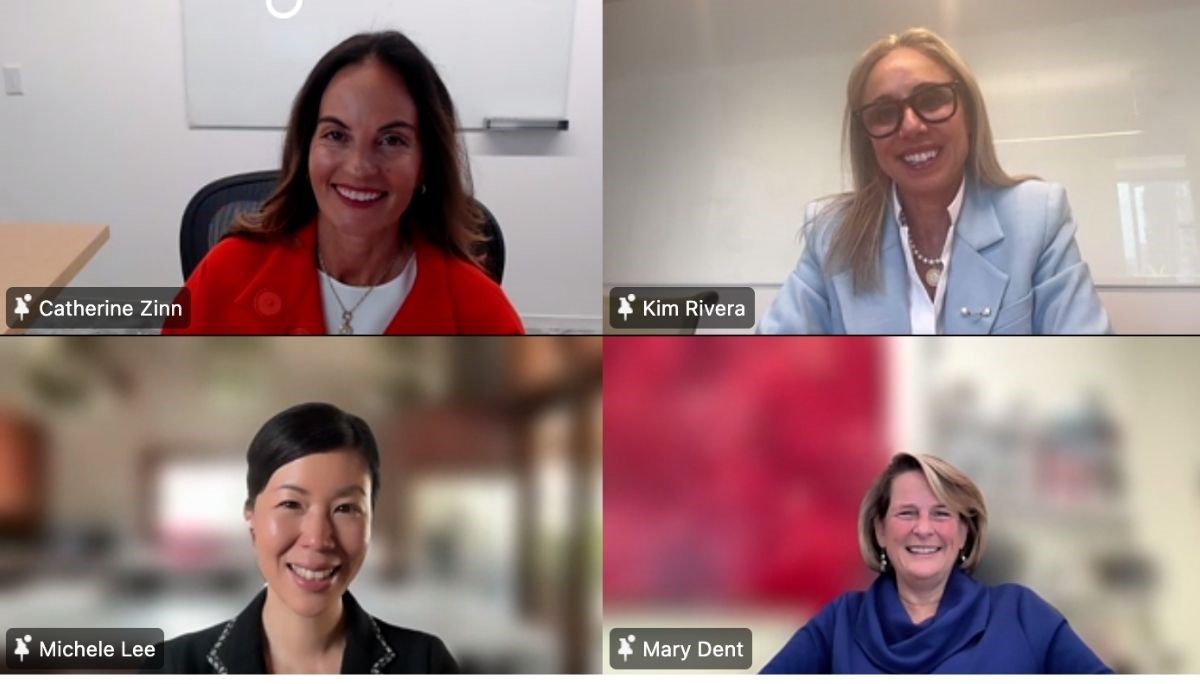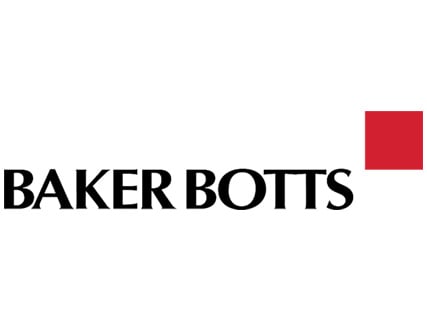Women's GC Cohort: How Can GCs Stay Ahead in a World of Rapid Regulatory Change?
Archive

NACD Northern California
Contact Us
Lisa Spivey,
Executive Director
Kate Azima,
Director of Partnerships & Marketing
programs@northerncalifornia.nacdonline.org
Find a Chapter
About The Event
In a world where regulatory landscapes are shifting faster than ever, General Counsels are on the front lines, guiding companies through evolving compliance, enforcement, and governance challenges.
Members joined Mary Dent, Managing Director, Klaros Group and Board Director; Michele Lee, former General Counsel at Pinterest; Kim Rivera, Chief Legal and Business Officer at OneTrust and Board Director at Thomson Reuters; and Catherine Zinn (moderator), Chief Client Officer at Baker Botts, as they discussed how general counsels can effectively manage regulatory uncertainty and maintain strong governance practices.
VIEW THE RECORDING:
KEY TAKEAWAYS FROM PANELISTS:
Key Challenges and Focuses for GCs
- Balancing AI with day-to-day tasks: It’s challenging to make time for deep thinking about AI and other complex issues while handling urgent matters.
- Regulatory uncertainty: The complexity and diversity of regulations in the EU and US make staying ahead of trends a key challenge.
- Building relationships with regulators: Proactively cultivating relationships with regulators and tapping into networks for actionable insights.
- Preparedness for the unexpected: Teams should be aligned and responsive to what’s most material to the company and customers, even if it’s not anticipated.
- Risk tolerance and compliance: Understanding how compliance is shifting, especially with digital regulations in the US and EU. Reevaluating risk tolerance is crucial.
The Unique Role of the GC Within the Boardroom
- GC as the communication bridge: GCs interpret and align expectations between management and the board, ensuring both are informed about potential risks.
- Horizon scanning and risk identification: GCs keep the board informed about emerging issues and potential risks, preventing surprises.
- Conflict resolution: GCs may facilitate open conversations to address conflict and ensure clarity in communication.
- Critical thinking and simplification: GCs are trained to break down complex issues, translating them into actionable insights for the board.
- Understanding the business: They not only understand the rules but also how to “play the game”—they know the business, risk tolerance, and how to connect legal requirements with strategic goals.
- Beyond risk registers: GCs should help the board understand trade-offs in decision-making, guiding them toward business resilience rather than just managing risk.
- Strategic board reporting: The most effective way to report to the board should empower the board by focusing on the trade-offs and strategic moves, not just the risk.
Staying Informed
- Effective information management: Stay informed through news alerts, horizon scanning, and understanding what changes will impact the business.
- Knowledge management: Leveraging networks and GenAI news sources to anticipate changes and align with the company’s risk profile.
Key Lessons for GCs Working with Boards
- Act despite uncertainty: Risk may feel overwhelming, but focusing on growth and innovation is key. GCs need to stay calm, make reasonable judgments, and avoid paralysis.
- Build relationships ahead of crises: Establishing trust and mutual understanding with stakeholders before a crisis is crucial for managing challenges effectively.
Defining Risk Appetite Policies
- Understanding data use: GCs need to ensure that data use and AI strategies align with risk appetite, and are clearly communicated to the board.
- Risk appetite conversations: Engaging with engineering and product teams to determine whether the company is on the cutting edge or taking a more conservative approach to risk.
- Trust and transparency: Ensuring trust in data usage is crucial, particularly with AI tools. GCs must anticipate risks before they occur.
Crisis Management
- Preparedness is key: Crisis management should be part of routine practice. Have a clear protocol for responding quickly and effectively.
- Minimize delays and maintain trust: The biggest challenge in a crisis is paralysis or fractured teams. Proper communication and quick decision-making are essential for maintaining trust.
Final Key Takeaways and Questions for the Boardroom from Panelists
- AI governance: What is your AI strategy? Do you have established governance principles in place? Are you aware of where your data resides and how it's being used? How are you ensuring transparency in the use of customer data? This is not a one-time question—how are you continuously revisiting and refining your approach? Additionally, what steps are you taking on the product side to innovate with AI, and how are you positioning your business for growth?
- Slow down to make better decisions: Take the time to reassess your assumptions and consider whether you would make the same decisions if those premises were proven wrong. Rushing decisions can result in costly mistakes.
- Focus on material issues: Do I have a comprehensive understanding of the key issues facing my business? Listen carefully and focus on the most material issues. Ensure that time, attention, and resources are invested in fostering a shared understanding for the board and management so that everyone is equipped to respond strategically.
Thank you to our generous partner for making this event possible:
NACD Northern California
Contact Us
Lisa Spivey,
Executive Director
Kate Azima,
Director of Partnerships & Marketing
programs@northerncalifornia.nacdonline.org
Find a Chapter
By registering for an NACD or NACD Chapter Network event, you agree to the following Code of Conduct.
| NACD and the NACD Chapter Network organizations (NACD) are non-partisan, nonprofit organizations dedicated to providing directors with the opportunity to discuss timely governance oversight practices. The views of the speakers and audience are their own and do not necessarily reflect the views of NACD. |



